Can Vegans Eat Snails? Vegans cannot eat snails because they are considered animals, which goes against the vegan diet that avoids all animal products and byproducts.
As more people adopt a vegan lifestyle, questions inevitably arise about what is and isn’t allowed in their diet. One food that may cause some debate among vegans is snails. Are they considered animals?
This article discusses the ethics behind eating snails, and their nutritional benefits, and answers the question Can Vegans Eat Snails? So sit back, relax, and let’s dive into the world of snail consumption!
| Key Takeaways |
|---|
| Snails are animals and therefore not considered vegan food. |
| Snails can carry diseases, parasites, and bacteria. |
| Eating snails can harm the environment and disrupt ecosystems. |
What do vegans eat?
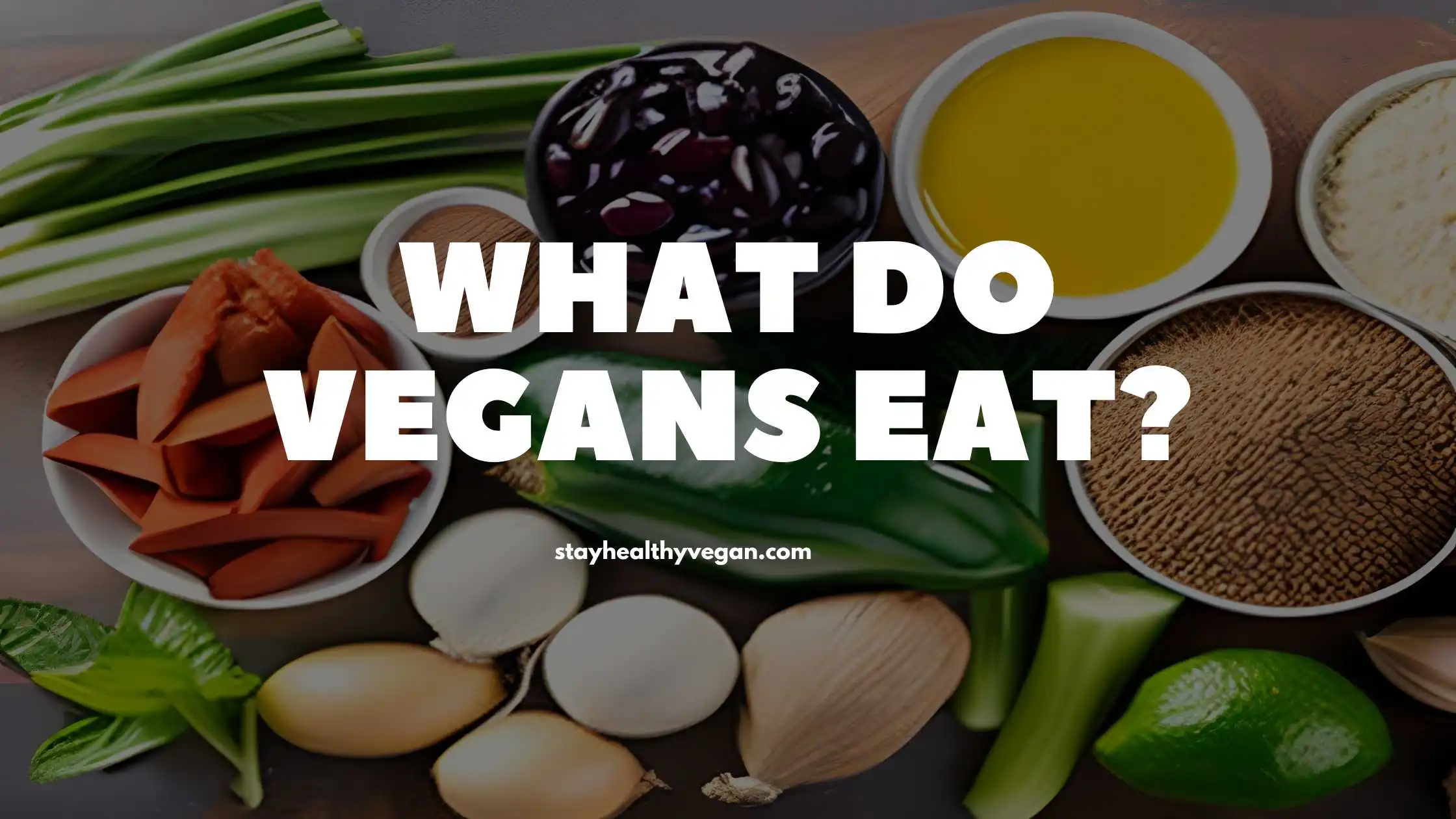
Veganism is a lifestyle choice that involves abstaining from the consumption of animal products. While it may seem to limit, vegans actually have an incredibly varied and delicious diet!
Hungry for the Best Vegan Products? Discover Our Top Picks You Can't Resist! 🥬
Here are some descriptions of the main food groups for vegans:
- Fruits and Vegetables: One of the main food groups for vegans is fruits and vegetables. This includes a wide variety of options, from leafy greens like kale and spinach to juicy berries, sweet potatoes, avocados, and more.
- Whole Grains: Whole grains such as quinoa, brown rice, oats, and bread made with whole wheat flour can provide filling carbohydrates in vegan diets.
- Nuts and Seeds: Nuts and seeds are also staples in many vegan diets because they’re high in healthy fats and protein. Almonds, cashews, sunflower seeds – these all serve as great snacks or toppings for salads!
- Protein Sources: Protein is an important nutrient that is needed for building and repairing tissues in the body. There are plenty of plant-based sources of protein that are suitable for vegans. Lentils, chickpeas, tofu, tempeh, and other legumes are just some examples of protein-rich foods that can be used in any dish while also being packed full of nutrients.
What are snails?
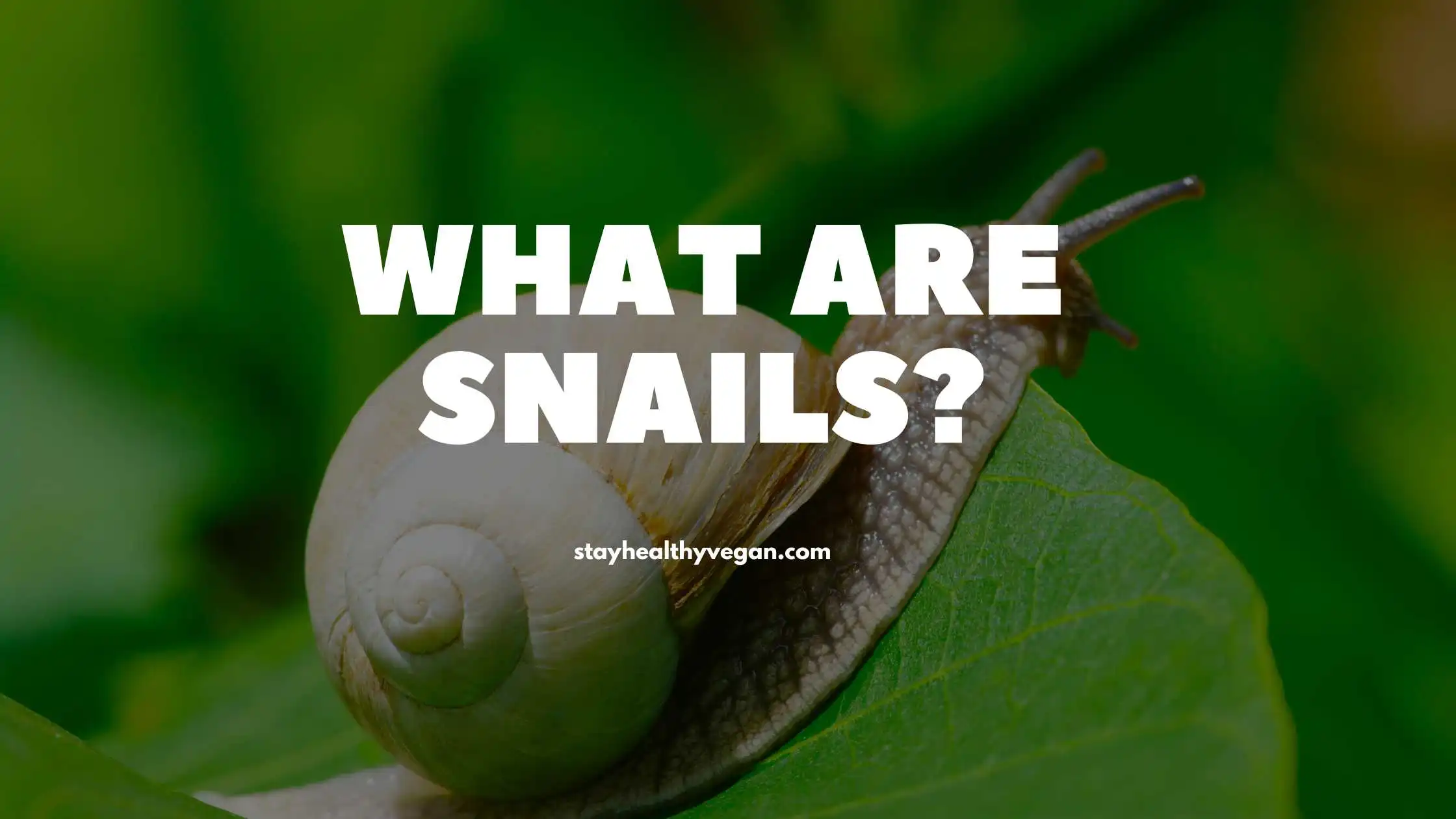
Snails are a type of mollusk that has a soft body and a hard, spiral-shaped shell. They are found in various habitats such as freshwater, terrestrial areas, and oceans. Snails move by gliding on their muscular foot which secretes mucus for lubrication.
Their shells come in different colors such as brown, white, or black, and have distinct patterns unique to each species. The size of the snail varies from less than an inch to nearly 12 inches long depending on the species.
Snails play an important role in ecology as they help decompose dead plant material and contribute to soil health. They also serve as food for birds, mammals, reptiles, and some people around the world.
Despite being known primarily as pests or delicacies around the world depending on cultures or beliefs system; snails remain fascinating organisms with unique characteristics worth exploring further!
The Ethics of eating snails
The Ethics of eating snails is a complex and controversial topic that has been debated for centuries. While some people believe that eating snails is perfectly ethical, others argue that it is cruel and immoral.
Here is a list of ethical considerations when it comes to eating snails:
- Animal Welfare: Some people argue that eating snails is unethical because it involves killing and consuming living creatures. As with all animal products, it’s important to consider the welfare of the snails and whether their treatment is humane.
- Sustainability: Another ethical consideration is the sustainability of eating snails. Over-harvesting of wild snails can lead to population declines and even extinction. Therefore, it’s important to consider whether snails are being farmed or harvested in a sustainable way.
- Cultural Traditions: Eating snails is a common practice in many cultures, particularly in Europe and Asia. Some argue that it’s important to respect these cultural traditions and not impose our own ethical values on others.
Ultimately, whether or not it is ethical to eat snails will depend on one’s personal beliefs about animal rights and welfare as well as cultural norms surrounding their consumption.
Are Snails Considered Animals?
When it comes to classifying snails, there may be some confusion as to whether they are considered animals or not. To answer this question, we first have to define what an animal is.
In biology, an animal is a multicellular organism that belongs to the kingdom Animalia. This means that animals are characterized by having eukaryotic cells and being heterotrophic organisms (meaning they rely on other organisms for food).
In short, yes – snails are indeed considered animals according to scientific classification standards.
Yes Snails are Animal
Snails fit within this definition of animals since they are multicellular and belong to the same kingdom as all other animals. In fact, snails are part of the phylum Mollusca along with other creatures like clams and octopuses.
Despite their small size and seemingly simple anatomy, snails still possess many complex biological systems such as a nervous system and digestive system.
Can vegans eat snails?
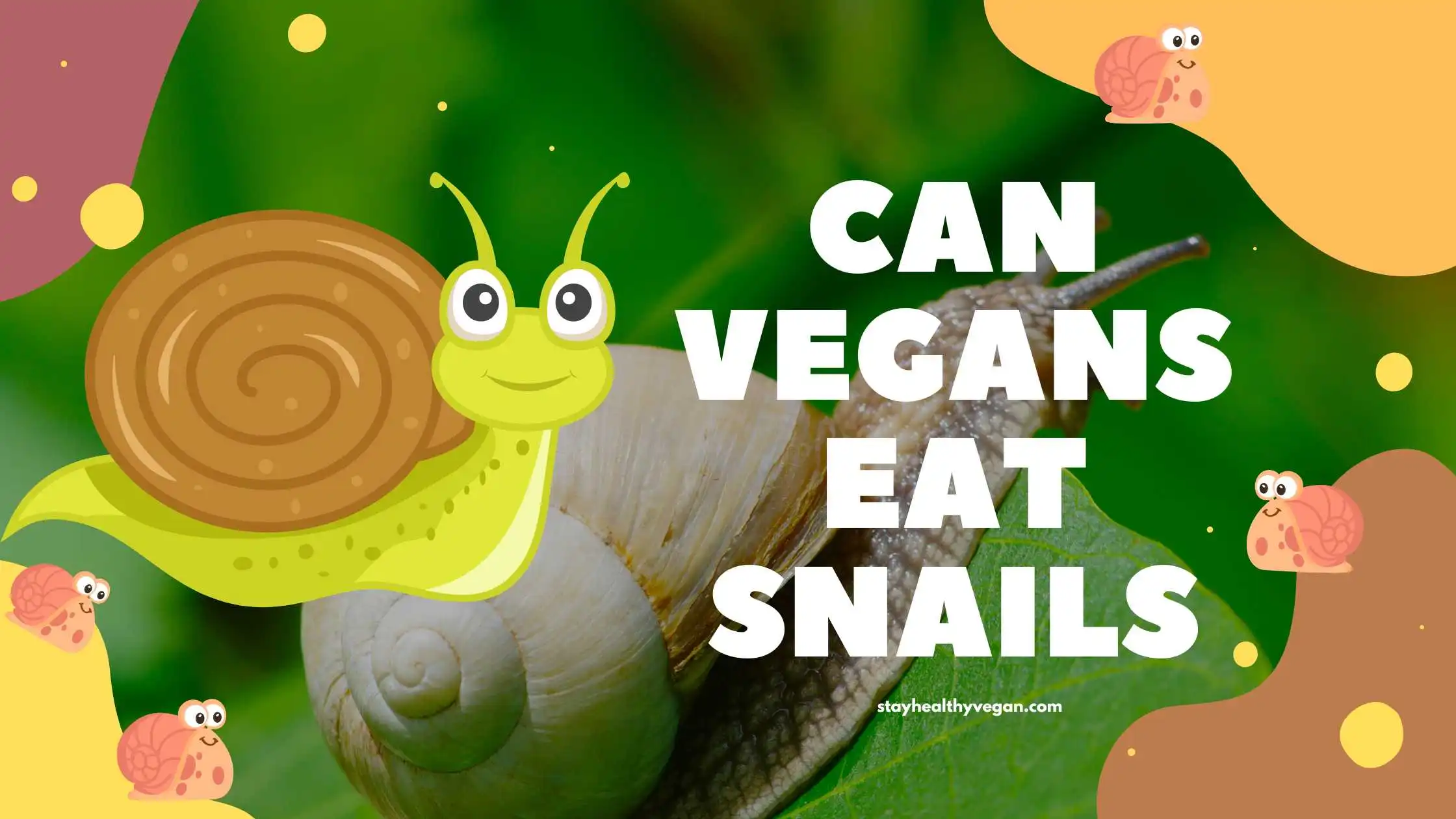
As a vegan, it’s important to understand what foods are considered ethical and nutritious for your diet. Snails actually belong in the realm of animal products.
In various cultures across the globe, snails are considered a delicacy and are often consumed as a food item.
No, vegans cannot eat snails. Snails are considered to be animal products, and consuming them would go against the core principles of veganism, which prioritizes minimizing harm to animals.
Can Vegans Eat Snails?
From an ethical perspective, those who follow a vegan lifestyle prioritize minimizing harm to animals. Hence, consuming snails would be deemed unethical by vegans.
While snails may be considered a unique source of nutrition by some individuals or cultures, they do not align with the core beliefs of veganism regarding ethics towards animals.
Can Vegetarians Eat Snails?
Vegetarianism is a dietary lifestyle that shuns the consumption of meat, poultry, and fish. However, some vegetarians consume dairy products and eggs. The question remains whether or not vegetarianism permits the consumption of snails.
Vegetarians are not allowed to eat snails because they refrain from consuming any animal-based products, which includes snails. If a vegetarian decides to eat snails, they will no longer be considered a vegetarian.
Can Vegetarians Eat Snails?
Many strict vegetarians may choose to avoid consuming any animal product altogether; therefore eating snails would be considered non-vegetarian.
It ultimately comes down to personal beliefs and definitions of vegetarianism. Those who follow a plant-based diet may also choose to avoid snail consumption based on ethical reasons or simply because it falls outside their defined dietary restrictions.
Nutritional Value of Snails:
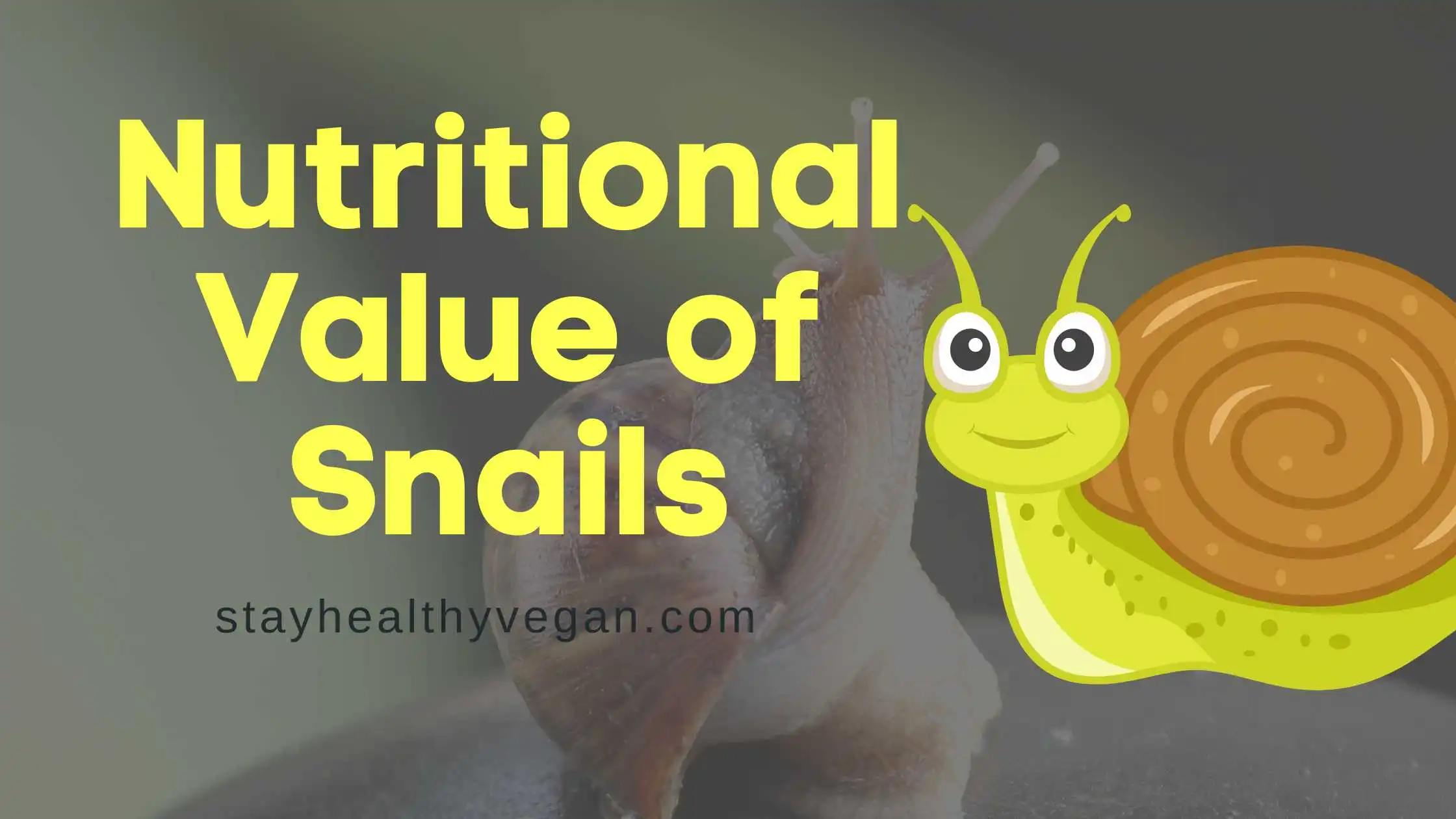
In terms of nutritional value, snails are high in protein containing essential amino acids needed for building tissues like bones and muscles.
Snails are a good source of protein and are also low in fat and calories. They are high in iron, calcium, and vitamin B12.
However, it’s important to note that there are other sources of these nutrients that are more widely available and easier for vegans to obtain.
Snails are often associated with French cuisine and are considered a delicacy. However, they are not commonly found on the plates of vegans or vegetarians due to their animal origin.
But for those who do consume them, snails can offer some impressive nutritional benefits.
Benefits of consuming snails:
- Excellent source of protein, with more protein per gram than beef.
- Rich in essential vitamins and minerals like iron and magnesium, which help boost energy levels and maintain strong bones.
- Low-fat content compared to other types of meat.
- High in omega-3 fatty acids that provide heart health benefits.
- Rich in antioxidants that reduce inflammation throughout the body and lower the risk of chronic diseases.
Although not preferred by all dietary choices because its animal origins may clash with ethical beliefs or personal values.
Health risks associated with eating snails:
While snails may not have the same environmental impact as other types of animal agriculture, there are still concerns to consider.
For one, the gathering of wild snails can have a negative impact on the local ecosystem. Additionally, the process of transporting snails can lead to carbon emissions and other environmental issues.
Health risks associated with eating snails:
- Risk of contracting parasitic infections like Angiostrongylus cantonensis and Fasciola hepatica.
- Possibility of ingesting harmful pesticides or toxins if snails were collected from contaminated areas.
- Allergic reactions for those with shellfish allergies.
- Risk of food poisoning if snails are not properly cleaned, cooked, or stored.
Can pescatarians eat snails?
Pescatarians are individuals who follow a diet that includes fish and seafood but excludes other types of meat. This begs the question, can pescatarians eat snails?
Snails are often classified as seafood which may lead some pescatarians to assume they are safe for consumption within their dietary restrictions. However, it is important to note that snails are not actually fish or marine animals.
The answer to this query is yes; pescatarians can indeed eat snails as they are considered seafood rather than land-based creatures.
Can pescatarians eat snails?
Overall, while not everyone may be keen on consuming these slimy creatures, pescatarians have one more seafood option available for their daily diet plan!
As always, it’s essential for individuals following any type of specialized diet plan to do thorough research on individual food items before incorporating them into meals.
Are snails omnivores?
Snails are fascinating creatures that have a unique feeding behavior. They are known to be selective eaters and can thrive on different types of diets depending on the environment they live in. So, are snails omnivores?
To answer this question, we need to understand what an omnivore is. An omnivore refers to an animal that eats both plants and animals as part of its diet.
Are snails omnivores? Yes, they are. However, they do not solely rely on plant-based diets to sustain themselves. These creatures have a diverse palate that includes both plant and animal matter.
Are snails omnivores?
Some species of snails feed on small insects, worms, and even other snails as part of their diet. Others prefer algae or decaying organic matter found in damp environments like soil or water bodies.
It’s fascinating how adaptable these gastropods can be when it comes to finding food sources in their surroundings.
Therefore, it is safe to say that snails are indeed omnivorous animals capable of eating both plants and animals for survival purposes.
Are snails seafood?
When we think of seafood, we typically picture fish, shrimp, and other aquatic creatures. But what about snails? Are they considered seafood?
The answer, surprisingly, is yes! Snails are considered a type of shellfish and can be prepared in many similar ways to other popular seafood dishes.
Are snails seafood?
In fact, they have been used for culinary purposes for thousands of years, particularly in French cuisine where escargot (cooked land snail) is a well-known delicacy.
While some people may not consider snails as seafood due to their appearance and habitat on land, it’s important to note that they share many similarities with traditional sea-dwelling creatures such as clams and oysters.
So next time you’re at a restaurant or ordering from your local fish market, don’t overlook the humble but delicious snail as an option for your next seafood dish!
Are oysters vegan?
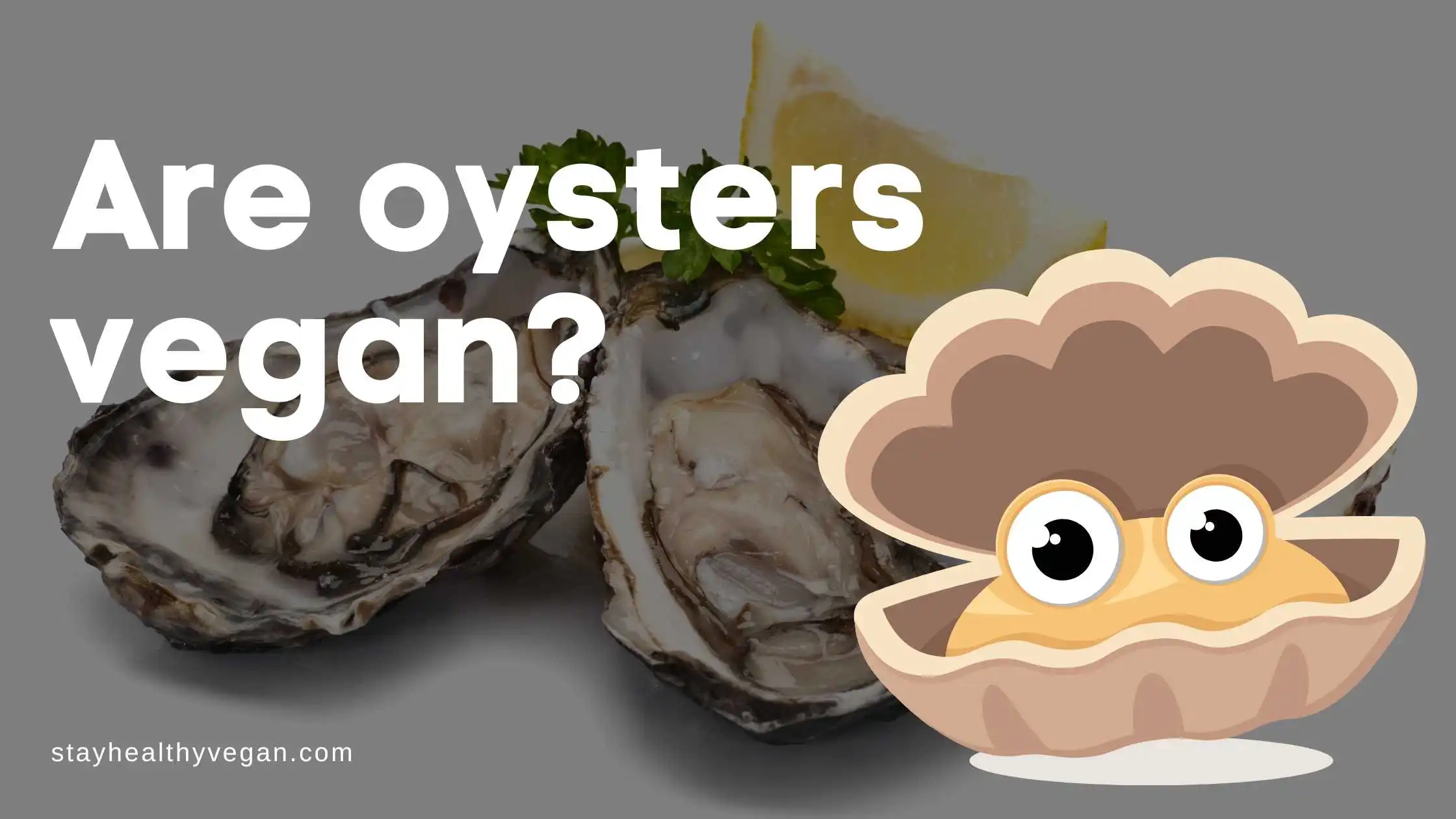
When it comes to the question of whether or not oysters are vegan, there is a lot of debate among vegans and vegetarians.
The classification of oysters as vegan is a topic of debate among those who follow a vegan diet. While oysters are not considered animals by some due to their lack of a central nervous system, others argue that they are indeed animals and therefore not suitable for a vegan diet.
Based on the definition of veganism, which excludes the consumption of any animal products or by-products, oysters cannot be considered a vegan food. This is because oysters are living organisms and are not plants, and therefore do not fit within the definition of a vegan diet.
Are Oysters Vegan?
Some vegans choose to avoid consuming oysters because they believe that they are not a plant-based food and may cause harm or exploitation to the animal.
Ultimately, it’s up to each individual to decide where they draw the line in terms of what constitutes an ethical and sustainable diet within their personal values and beliefs about animal welfare and environmental conservation.
FAQ:
Should Snails Be Kept In Water?
Yes, snails do need access to water in order to survive. But it’s not mandatory.
Are snails considered meat?
Yes, snails are considered meat because they are part of the animal kingdom.
What are some vegan alternatives to snails?
There are many plant-based alternatives to snails, such as mushrooms or tofu.
How Do Snails Eat Plants?
When a snail eats, it uses its radula, a rough tongue-like organ that is covered in tiny teeth, to scrape and tear apart plant material.
Conclusion
We hope that this article has provided you with an answer to the question of whether or not vegans can eat snails.
The answer is no, vegans cannot eat snails as they are animals and therefore a violation of vegan dietary guidelines.
If you are looking for some non-animal alternatives to add variety to your diet, there are plenty of plant-based options available that can provide similar nutrition without compromising on ethical principles.
From vegetable stir fries to nut-based sauces and even animal product substitutes, there’s something out there for everyone!
